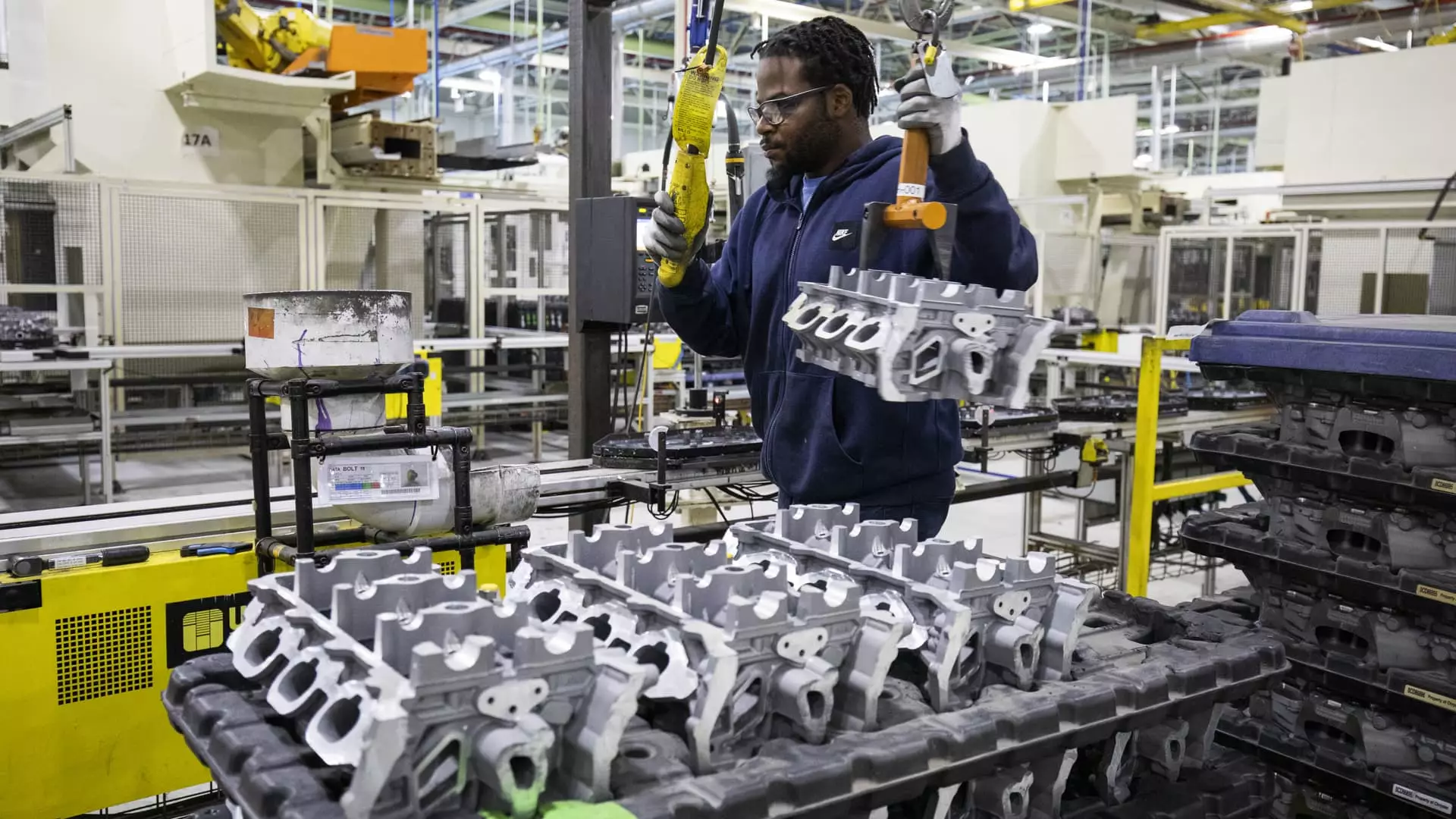In a highly unusual display of collective action, six prominent groups within the U.S. automotive industry have banded together in opposition to the impending 25% tariffs on imported auto parts. This unexpected coalition—encompassing franchised dealers, suppliers, and nearly all major automakers—highlights the gravity of the situation. Typically fragmented in their interests and priorities, these organizations are now conveying a singular message that underscores a looming crisis that could unravel hundreds of thousands of jobs nationwide. When influential industry leaders cast aside their differences to voice concern, it’s imperative to take heed.
The letter sent to key figures in the Trump administration articulates the bleak reality many auto suppliers are currently facing. With a significant portion already “in distress,” the financial burden of additional tariffs could tip the scales towards greater instability. It’s essential to recognize that the automotive sector is the linchpin of American manufacturing, supporting around 10 million jobs across all states and contributing an astonishing $1.2 trillion to the national economy every year. Tariffs jeopardizing this vital industry are not merely abstract economic concepts; they threaten livelihood and economic stability for countless American families.
The Domino Effect: Interconnectedness of Supply Chains
The chaos that may ensue from these tariffs reveals a stark truth about automotive production: it is not built on isolated components but rather a vast, interconnected web of suppliers. The letter warns that the failure of a single supplier could lead to cascading consequences across the industry, echoing the turmoil experienced during the pandemic. Such a situation isn’t just theoretical; we witnessed firsthand how vulnerable our supply chains could be. Auto executives, along with industry experts, argue that the real victims of these tariffs will be the suppliers who bear the brunt of cost increases, which automakers might be more capable of absorbing.
It’s a sobering thought that a punitive trade policy could instigate production stoppages, layoffs, and even bankruptcies—creating an industry-wide crisis when one supplier falters. Particularly in an era marked by economic uncertainty, the government should recognize its role in fostering a resilient industry rather than imposing measures that could actively sabotage it.
A Call for Thoughtful Policy: The Need for a Balanced Approach
President Trump’s expressed willingness to reconsider tariffs, drawing parallels to recent tariff reliefs approved for consumer electronics and semiconductors, offers a glimmer of hope. Yet, genuine policy change requires more than mere communication; it calls for a robust, evidence-based approach that weighs the benefits against the costs. The automotive industry must not be treated as a bargaining chip in broader trade discussions; it ought to be a partner in shaping policies that ensure long-term growth and sustainability.
Industry groups emphasize the importance of maintaining ongoing manufacturing operations while also advocating for the establishment of additional supply chains rooted in the U.S. However, as they rightly point out, rerouting global supply chains cannot be accomplished quickly. This process demands a comprehensive strategy—one that allows time for transition without crippling the sector in the interim.
The Economic Reality: Jobs at Stake Amidst Tariff Hysteria
U.S. auto production hinges on a delicate balance between supply and demand, both of which could be disrupted by the tariffs’ proposed implementation. Analysts are forecasting significant drops in vehicle sales, potentially amounting to millions of units. This forecast doesn’t just reflect numbers on a spreadsheet; it translates into lost jobs, disrupted lives, and a ripple effect that will extend beyond immediate factories and suppliers to unwittingly affect entire communities.
Indeed, the impact of the tariffs extends beyond just financial metrics. A car factory, once a beacon of the American manufacturing prowess, could become the harbinger of economic distress, dragging along suppliers, local businesses, and families who depend on a stable job market. When policymakers prioritize aggressive tariffs over strategic partnerships and innovative support systems, they risk sacrificing the foundational muscle of American manufacturing for short-term gains.
In an age where the global economy hangs in a precarious balance, the automotive industry’s struggle against these tariffs illustrates the complexities of modern trade and manufacturing. It’s a compelling reminder that policy decisions aren’t merely abstract discussions; they have far-reaching consequences that echo in the lives of everyday Americans.

